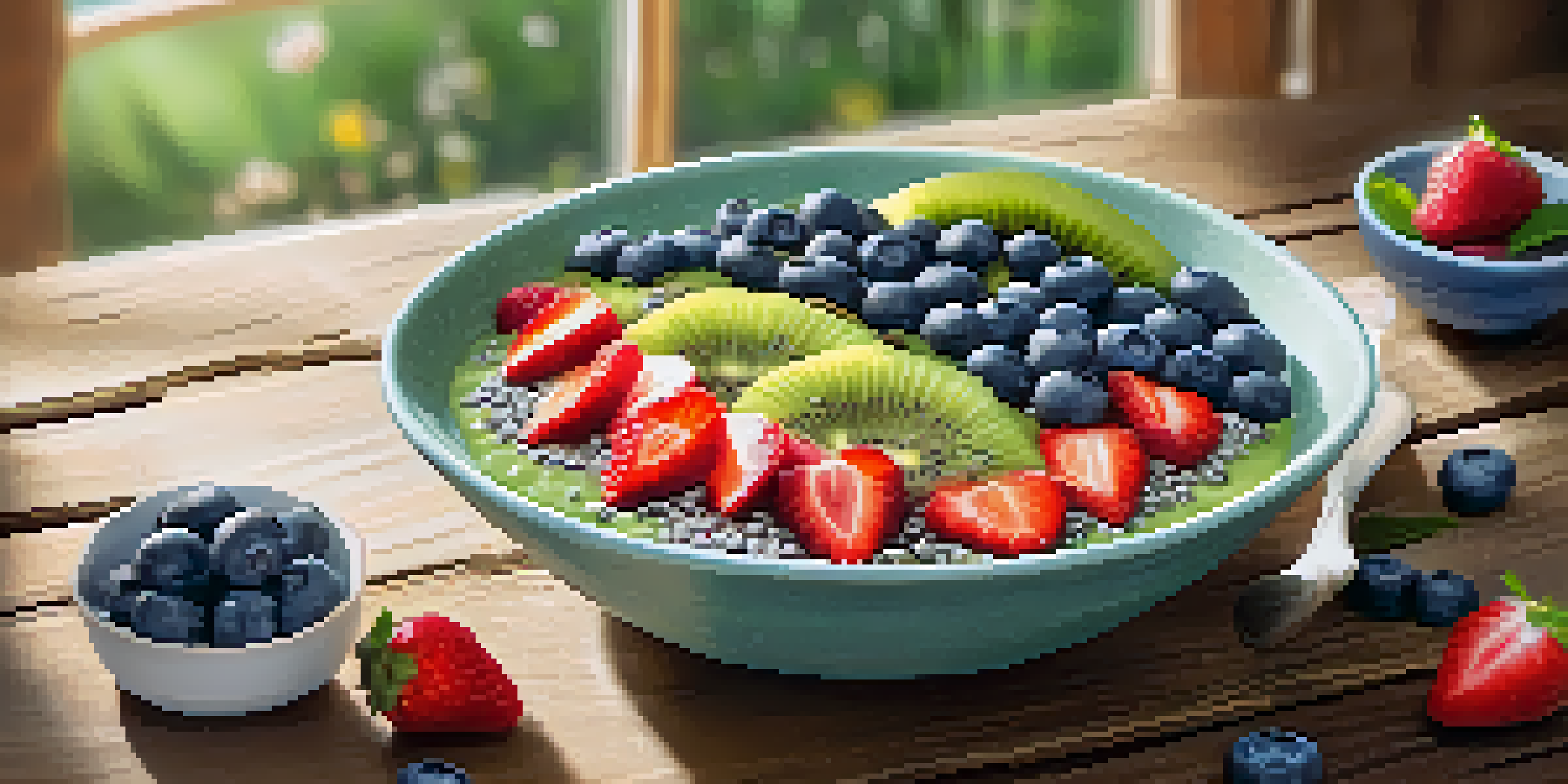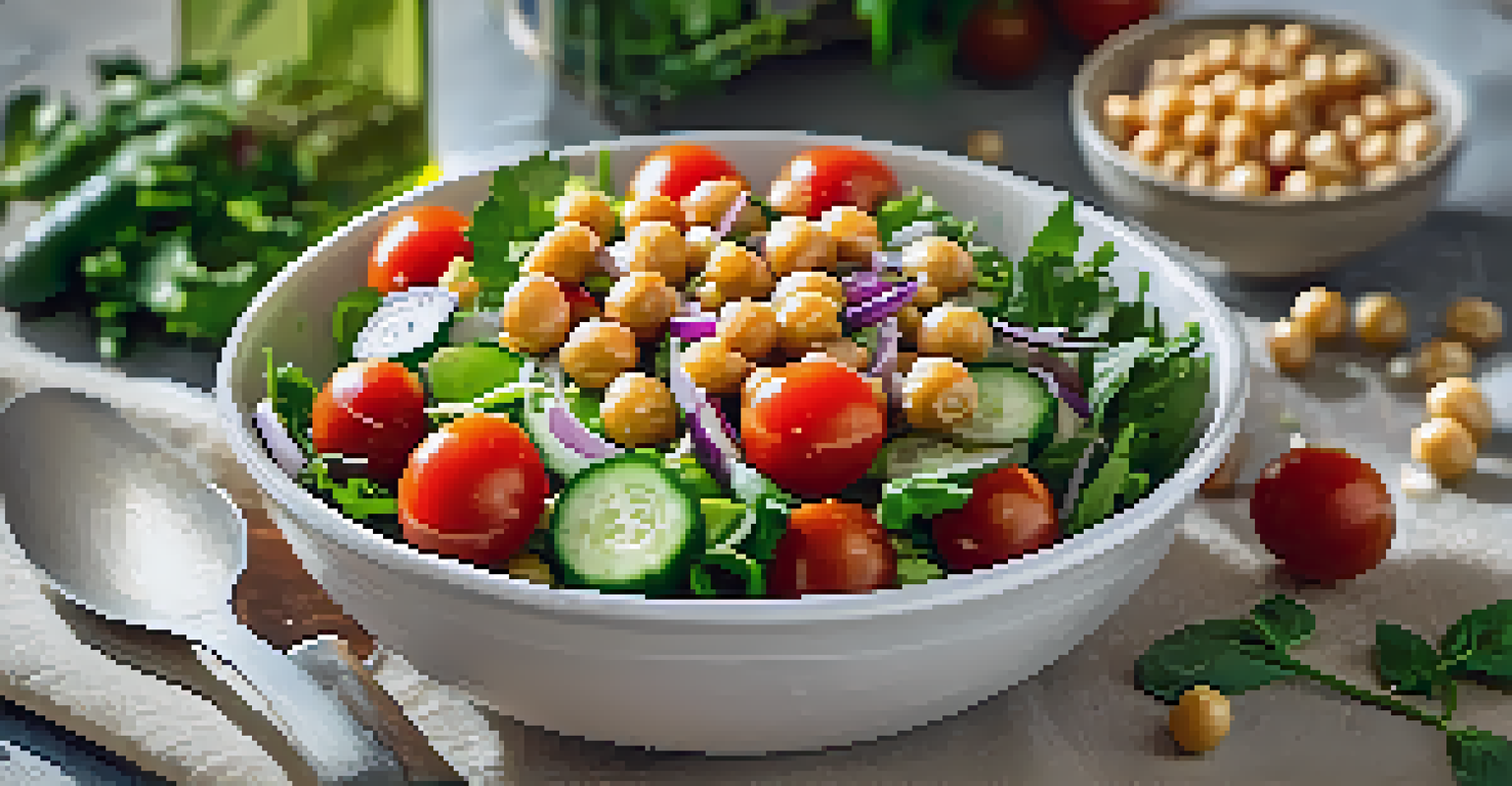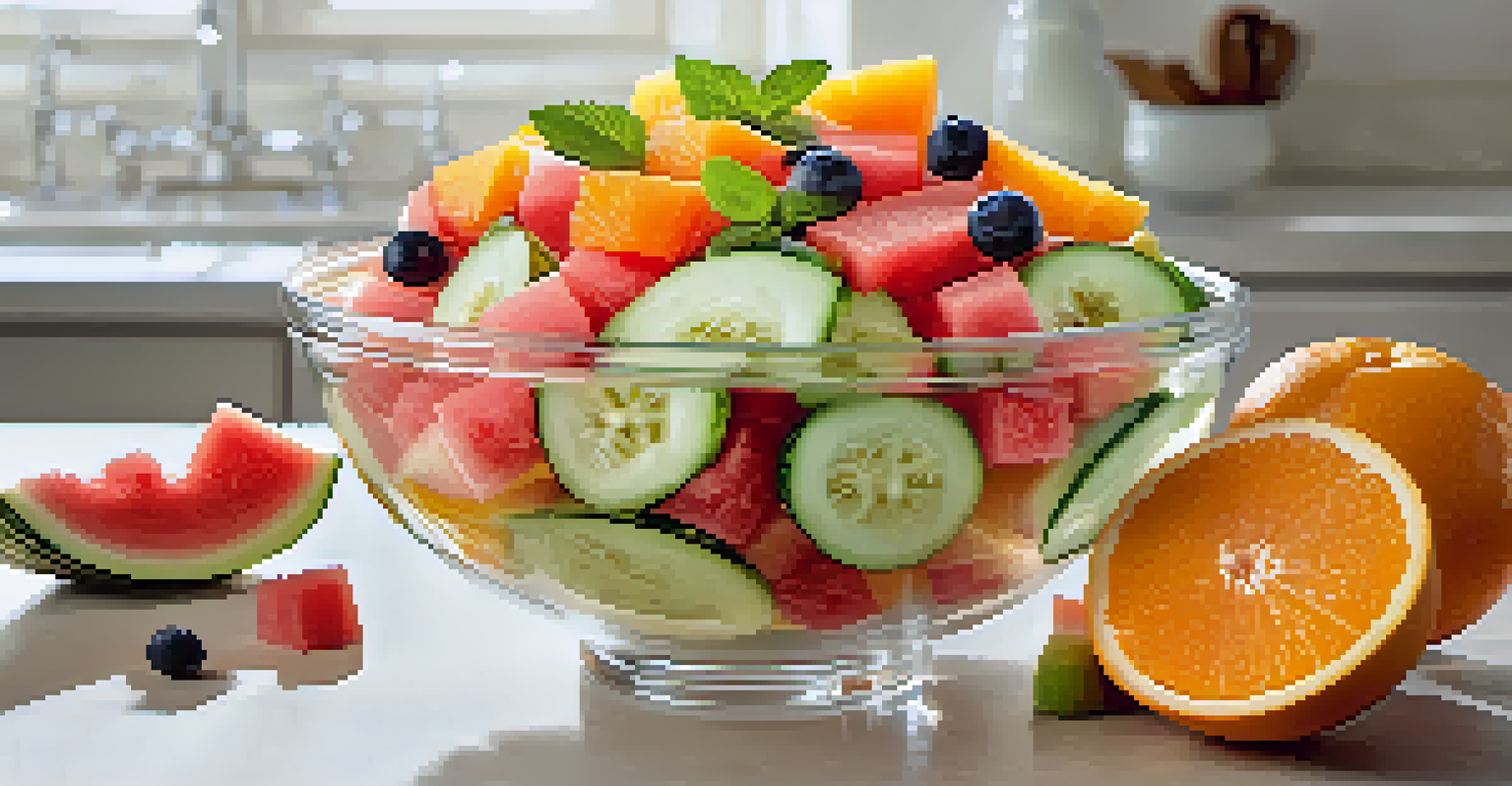Nutrients in Plant-Based Diets That Promote Youthful Skin

Antioxidants: The Skin's Best Friend
Antioxidants play a crucial role in protecting your skin from damage caused by free radicals. These unstable molecules can accelerate aging by breaking down collagen and elastin, leading to wrinkles and sagging. Fortunately, a diet rich in plant-based foods is packed with antioxidants, such as vitamins C and E, which are found in fruits and vegetables like oranges and spinach.
Let food be thy medicine and medicine be thy food.
Berries, particularly blueberries and strawberries, are excellent sources of antioxidants. They not only taste great but also help combat oxidative stress, keeping your skin looking vibrant and youthful. Incorporating a variety of colorful fruits and veggies into your meals can create a powerful shield against the signs of aging.
To maximize the benefits of antioxidants, try making a smoothie bowl topped with a mix of berries, nuts, and seeds. This delicious treat not only nourishes your body but also gives your skin that coveted glow.
Healthy Fats: Nourishing from Within
Healthy fats, particularly omega-3 fatty acids, are essential for maintaining skin integrity and moisture. These fats help create a barrier that keeps your skin hydrated, reducing dryness and flakiness. Plant sources like walnuts, flaxseeds, and chia seeds are great additions to a plant-based diet for skin health.

Incorporating these fats into your meals can be as simple as adding ground flaxseeds to your morning oatmeal or blending walnuts into a pesto sauce. Not only do they contribute to youthful skin, but they also support overall health by reducing inflammation.
Antioxidants Fight Skin Aging
A diet rich in antioxidants from fruits and vegetables helps protect skin from free radical damage, promoting a youthful appearance.
To enjoy the benefits of healthy fats, consider snacking on a mix of nuts or making a creamy avocado dip. These delicious options will keep your skin supple and glowing while satisfying your cravings.
Vitamins A and C: The Dynamic Duo
Vitamins A and C are vital for maintaining skin health and promoting a youthful appearance. Vitamin A aids in cell turnover, which helps your skin shed dead cells and regenerate new ones. Rich sources of this vitamin include sweet potatoes, carrots, and dark leafy greens.
Beauty is how you feel inside, and it reflects in your eyes. It is not something physical.
On the other hand, vitamin C is crucial for collagen synthesis, which keeps your skin firm and elastic. Citrus fruits, bell peppers, and broccoli are all excellent choices to boost your vitamin C intake. Combining these vitamins in your diet can help your skin look fresh and rejuvenated.
Try roasting sweet potatoes and pairing them with a citrus salad for a meal that’s not only delicious but also packed with skin-loving nutrients. This combination will leave your skin looking brighter and more youthful.
Hydration: The Key to Plump Skin
Staying hydrated is essential for maintaining skin elasticity and preventing dryness. Water helps to flush out toxins and keeps your skin cells functioning optimally. While drinking enough water is crucial, you can also boost your hydration levels with water-rich fruits and vegetables like cucumbers, watermelon, and oranges.
Incorporating hydrating foods into your diet can make a significant difference in how your skin looks and feels. Not only do these foods provide hydration, but they also offer essential vitamins and minerals that further support skin health.
Healthy Fats Keep Skin Hydrated
Incorporating healthy fats, like omega-3s from plant sources, supports skin moisture and integrity.
For a refreshing snack, try a fruit salad with watermelon and cucumber. This hydrating treat is perfect for hot days and works wonders for your skin!
Minerals: Zinc and Selenium for Skin Health
Minerals like zinc and selenium are often overlooked, but they play a vital role in skin health. Zinc is known for its ability to aid in wound healing and reduce inflammation, while selenium helps protect your skin from UV damage. Foods such as pumpkin seeds, lentils, and Brazil nuts are excellent plant-based sources of these essential minerals.
Including these minerals in your diet can help keep your skin looking youthful and vibrant. A deficiency in zinc or selenium can lead to skin issues, so it’s essential to ensure you’re getting enough through your diet.
Consider adding a handful of pumpkin seeds to your salads or snacking on Brazil nuts for a delicious way to boost your mineral intake. These small changes can have a significant impact on your skin's health.
Phytonutrients: Nature's Anti-Aging Agents
Phytonutrients are compounds found in plants that offer various health benefits, including maintaining youthful skin. These compounds, such as flavonoids and carotenoids, help reduce inflammation and protect against environmental stressors. Foods like tomatoes, carrots, and dark chocolate are rich in phytonutrients that can enhance your skin's appearance.
Incorporating a variety of colorful fruits and vegetables into your meals ensures you're getting a wide range of phytonutrients. These natural compounds work synergistically to promote healthy skin and can even help improve its texture and tone.
Vitamins A and C Promote Radiance
Vitamins A and C work together to enhance skin health by aiding cell turnover and collagen synthesis.
Try enjoying a colorful stir-fry packed with a mix of veggies to reap the benefits of these powerful phytonutrients. Your skin will thank you for the nurturing goodness!
The Power of Plant-Based Proteins for Skin Repair
Protein is essential for skin repair and regeneration, making it a crucial part of your diet. While animal sources of protein are commonly known, there are plenty of plant-based options that provide the necessary amino acids for healthy skin. Foods like lentils, chickpeas, and quinoa are excellent sources of protein that also deliver other skin-friendly nutrients.
Incorporating these plant-based proteins into your meals can help support collagen production and maintain skin elasticity. For example, a hearty lentil soup can be both filling and beneficial for your skin.

Consider making a chickpea salad or a quinoa bowl loaded with veggies. These dishes are not only delicious but also packed with protein and nutrients that will keep your skin looking youthful and radiant.